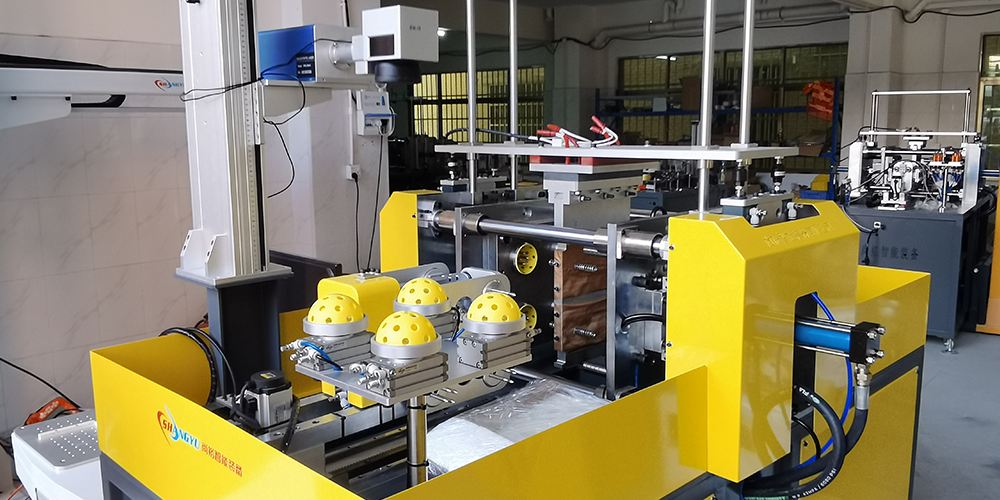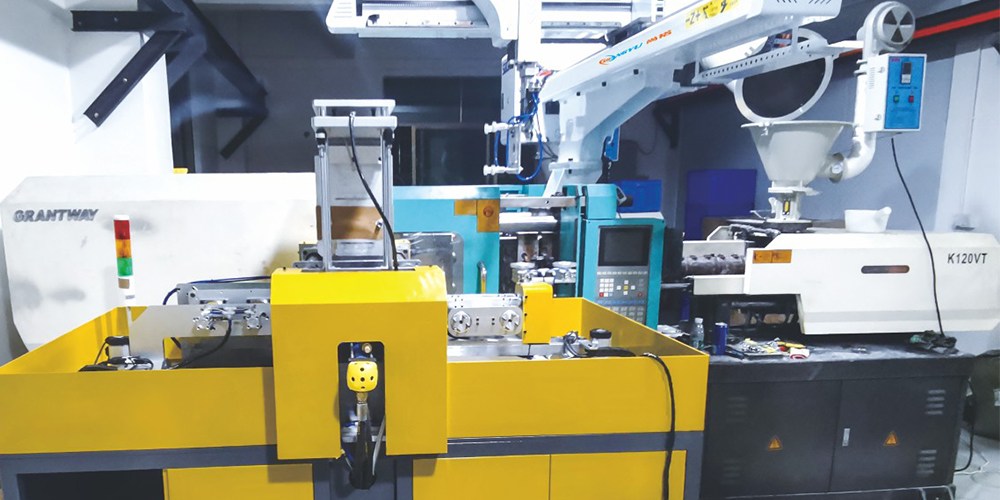Pickleball has rapidly gained popularity as a fun and competitive sport, leading to an increased demand for high-quality equipment. The production of pickleball gear, including paddles and balls, requires specialized machinery to ensure precision, durability, and performance. At Shangyu, we are dedicated to providing top-notch manufacturing solutions for the pickleball industry. In this article, we’ll explore the various types of equipment used in pickleball production.

1. Injection Molding Machines
Injection molding machines are essential in the production of pickleball balls and paddle components. This process involves injecting molten plastic into a mold to create the desired shape. The benefits of using injection molding for pickleball production include:
High Precision: Injection molding allows for consistent dimensions and quality control.
Rapid Production: This method enables high-volume production, meeting the growing demand for pickleball equipment.
Material Versatility: Various thermoplastics can be used, including polyethylene (PE) and polypropylene (PP), which provide durability and impact resistance.
2. CNC Machines
Computer Numerical Control (CNC) machines play a critical role in manufacturing pickleball paddles. These machines are used for precision cutting, shaping, and drilling to create paddles with optimal performance characteristics. Key advantages include:
Precision Engineering: CNC machines ensure that every paddle is cut to exact specifications, providing consistency in weight and balance.
Complex Designs: Manufacturers can produce intricate designs and patterns that enhance the aesthetic appeal of paddles.
Customization: CNC technology allows for customization, enabling brands to offer unique paddle designs that cater to specific player preferences.
3. Thermoforming Equipment
Thermoforming is another process used in the production of pickleball paddles, particularly for creating the outer layers and grips. This method involves heating plastic sheets until they become pliable and then forming them into specific shapes. Benefits of thermoforming include:
Lightweight Construction: Thermoformed paddles are typically lighter, enhancing player maneuverability.
Variety of Textures: The process allows for various surface textures and finishes, improving grip and feel.
Cost-Effective Production: Thermoforming can be more cost-effective for smaller production runs compared to injection molding.
4. Ball Forming Machines
Ball forming machines are specialized equipment used specifically for producing pickleball balls. These machines shape and assemble the balls using a combination of heating and pressure. Important features include:
Consistent Quality: These machines ensure that every ball meets the required standards for size, weight, and bounce.
Fast Production Speeds: Ball forming machines are designed for high throughput, allowing manufacturers to meet high demand.
Durability Testing: Advanced machines often include built-in testing capabilities to check the durability and performance of each ball during production.

5. Sanding and Finishing Machines
To ensure a polished and smooth final product, sanding and finishing machines are essential in the production process of pickleball paddles. These machines help refine the surface and prepare paddles for final inspection. Benefits include:
Improved Aesthetics: Proper finishing enhances the appearance of paddles, making them more appealing to consumers.
Enhanced Grip: Sanding improves the grip surface, making paddles more comfortable to use.
Quality Assurance: These machines help in maintaining high-quality standards by ensuring that all paddles meet the desired finish specifications.
6. Quality Control Equipment
Quality control is critical in the manufacturing process, and various types of equipment are used to ensure that pickleball products meet industry standards. This includes:
Measurement Tools: Calipers, micrometers, and digital measuring devices are used to check dimensions and tolerances.
Durability Testers: Machines that simulate play conditions to assess the performance and longevity of paddles and balls.
Visual Inspection Stations: These stations are equipped with high-powered lights and magnification tools to identify any surface defects.
Conclusion
The production of pickleball equipment requires a diverse range of specialized machinery to ensure high-quality, durable, and precise products. At Shangyu, we are committed to providing state-of-the-art equipment and solutions for the pickleball industry. Whether it’s through injection molding, CNC machining, or thermoforming, our advanced technology ensures that you receive the best pickleball equipment on the market.
If you're looking to enhance your pickleball production capabilities, contact Shangyu today to learn more about our innovative manufacturing solutions!

